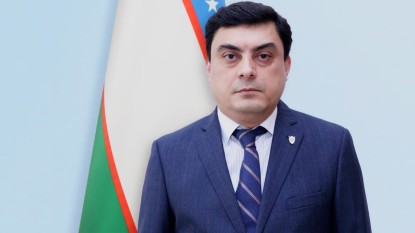The risk of zoonotic diseases in Central Asia is exacerbated by biodiversity loss and changes in human-wildlife interactions. To mitigate these risks, IUCN is implementing a project in five Central Asian countries, in collaboration with national authorities and international partners.
A two-day event in Tashkent (28-29 August 2024) introduced the project, discussed One Health initiatives, and featured workshops on the IUCN Green List Standard and other effective area-based conservation measures (OECMs).
The project “One Health in nature conservation in Central Asia” applies the “One Health” approach that integrates human, animal, and environmental health, strengthening the collaboration across sectors and disciplines such as medicine, veterinary science, ecology, and public health.
“Nature conservation plays a crucial role in reducing zoonotic risks through enhancing the resilience of Central Asian landscapes - essential for safeguarding human, animal, and environmental health that lie at the heart of the One Health approach,” said Oliver Avramoski, Director of IUCN Regional Office for Eastern Europe and Central Asia (ECARO). “We are committed to supporting governments in building national and regional capacity by applying IUCN's tools and standards, including the IUCN Green List, which is a global benchmark for effective and equitable area-based conservation.”
The IUCN Green List ensures that wildlife and ecosystems not only survive but thrive, bringing lasting value to communities. As a global standard tailored to local contexts, it applies to both nationally protected areas and conserved areas, including other effective area-based conservation measures (OECMs). By preserving intact nature and promoting well-governed conserved areas, the IUCN Green List offers solutions to societal challenges, and supports countries to achieve their Global Biodiversity Framework commitments with long-lasting results. Both One Health approach and the IUCN Green List emphasise the importance of well-managed and sustainable ecosystems in promoting overall health and well-being, not just for humans but for all living organisms and the environment.
"It is a well-known fact that "Nature knows no borders", and biodiversity loss, ecosystem degradation and climate change increase the risks of spreading outbreaks of zoonotic diseases. We hope that this project will serve as a good platform for coordinated efforts between Central Asian countries to prevent risks of zoonotic diseases, and raise awareness about the connection between nature conservation, ecosystem health and human well-being", said Aziz Abdukhakimov, Minister of Ecology, Environmental Protection, and Climate Change of Uzbekistan, in his opening remarks.
The two-day event in Tashkent is attended by government representatives from Kazakhstan, the Kyrgyz Republic, Tajikistan, Turkmenistan, and Uzbekistan, and numerous national and international organisations, confirming strong regional commitment to One Health approach in nature conservation in Central Asia.
“With this newly launched IKI project, BMUV aims to contribute to prevent future zoonoses. This innovative project is set to operationalise the One Health approach in protected areas and beyond as well as in national policy making. We are confident it will generate important new knowledge and good practices to reduce the risk of zoonoses,” stressed Dr. Matthias Schröter-Vinke, IKI Office at ZUG (project executing agency), speaking on behalf of the donor, the Federal Ministry for the Environment, Nature Conservation, Nuclear Safety and Consumer Protection (BMUV) today in Tashkent.
Coordinated by IUCN, this partnership brings together international partners, including the Michael SuccowвАѓFoundation, the Secretariat of the Convention of Migratory Species (CMS), UNEP World Conservation Monitoring Centre (WCMC), and the Zoological Society of London (ZSL), and national authorities and expert organisations across the region, such as CAMP Alatoo in Kyrgyzstan, the Institute of Zoology of Kazakhstan, the Institute of Zoology of Uzbek Academy of Sciences, and the Tajikistan Nature Foundation (TNF).














